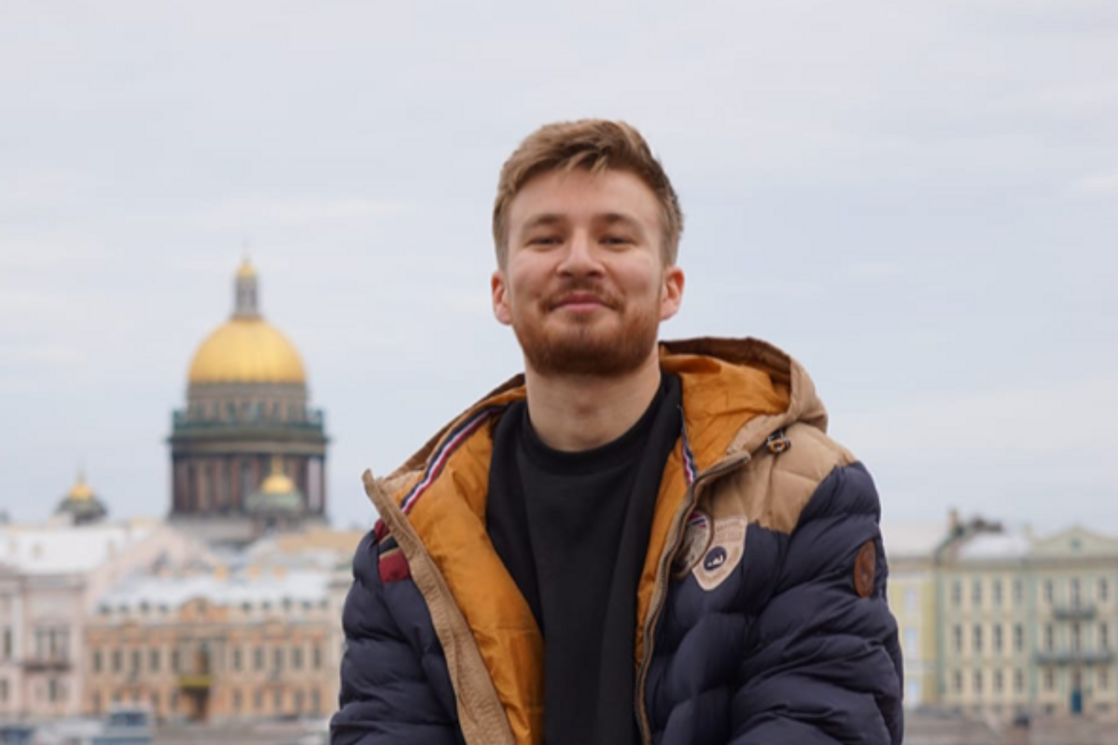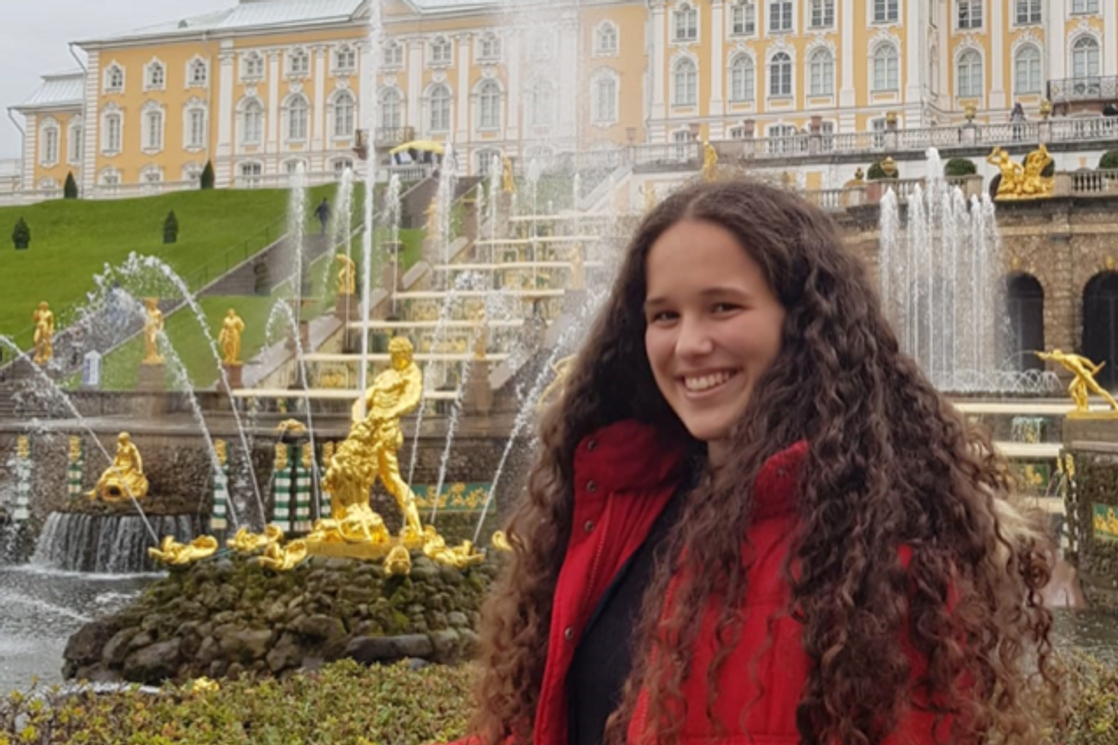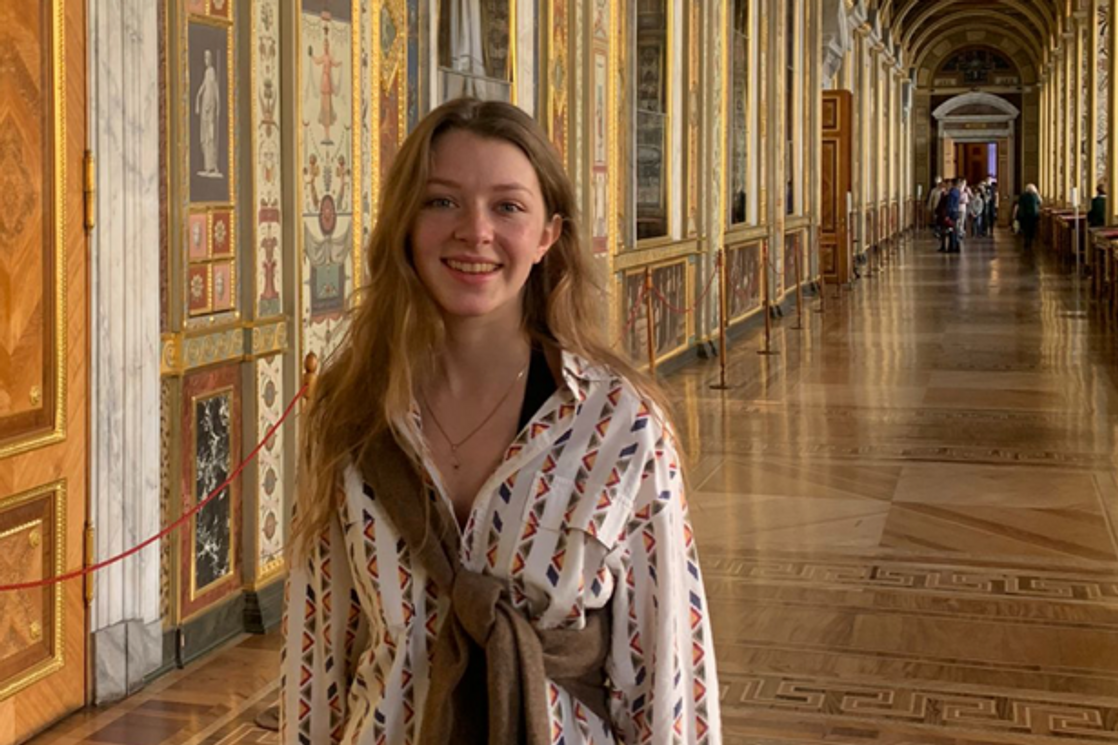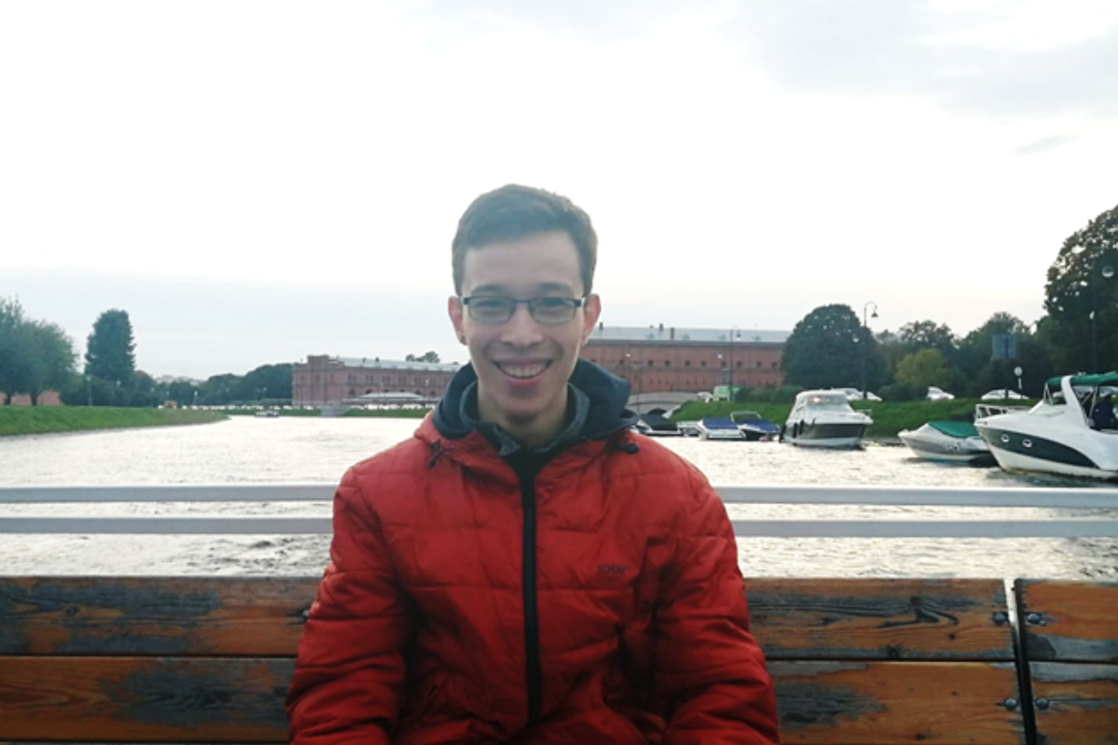German Students Explore St. Petersburg and Russian History during HSE University’s Summer School
This September, 16 German students spent three weeks exploring the political and cultural space of St. Petersburg during the Summer School ‘The Topography of Imperial Power’ organized by the HSE Department of History in cooperation with the Department of the History of Eastern Europe (Georg-August University of Göttingen).
The summer school programme included seminars and lectures on the Topography of Imperial Power that touched upon economic, social, and political developments in the Russian Empire. Students also attended Russian language classes and took part in numerous social activities and cultural events.
HSE University professors showed the German students around the city, which was once the political heart of the Russian Empire and the cradle of the Russian revolution. There was a special tour of St Petersburg’s metro stations with Phillip Schroeder, Senior Lecturer of the Department of the History of Eastern Europe at Georg-August University of Göttingen, and day trips to Kronstadt and Duderhof Heights. Students also had an opportunity to visit some Russian NGOs and learn more about topical social issues.
HSE University students accompanied the German students as buddies, organizing additional activities on top of the official summer school programme to showcase St Petersburg’s unique atmosphere and historical spirit.

Timur Schmidt, University of Cologne, Central & Eastern European Studies
I always wanted to visit Russia and the Summer School was the perfect opportunity for that. Three weeks is quite a good time to get to know the city. I wish I would have known sooner about the DAAD-GoEast Program and the opportunity to visit St. Petersburg.
Every day we had either classes or excursions, but we used our free time to visit a lot of beautiful places as well. I didn’t know so much about the imperial chapter of Russian history because I specialize in Soviet history. So, I learned quite a lot about the history of St. Petersburg, the imperial capital of the Tsarist Empire.
I can definitely compare St. Petersburg to Paris and Hamburg. And I also find that the people, especially young people, remind me a lot of the people in Berlin. My buddy, Asilbek, is also a Kazakh, so we got on well and he helped me a lot. We walked around the city and went to St. Isaac’s Cathedral, the mosque, the Museum of Political History of Russia, and the market.
I really liked Saint Petersburg and I enjoyed the summer school. There were Russian language courses, which also helped me a lot. It was an advanced course, so it was difficult to find common ground, but I still learned a lot, because I still have got problems with my grammar and writing. I also try to speak Russian to improve my language skills.

Tabea Diedrich, the University of Göttingen, History & Political Sciences
That’s my first experience with Russia because at school we learned a lot about German history but not so much about the history of Russia and the Soviet Union. I’m really interested in the topic, and so the summer school was a great chance to learn a little bit more about it.
In Russian language seminars, we learned a lot of grammar and vocabulary. It was a bit hard especially because I missed some classes. We learned about the verbs, adjectives, and the endings—the endings are the hardest because you always have to change them, which is so difficult. In French it easier to learn the articles than to change the endings in Russian because it’s not usual for us. I want to speak a little bit Russian, but can’t yet—so far, I can only phrase something like “спасибо” or “до свидания”. I think it’s a start for learning more.
As for the city, I’m very impressed by the façades of the buildings, and a tour is a great chance to see the history. I’m really happy to be in St. Petersburg and see places like the Hermitage. And although it’s colder here than in Germany, I think that the city is adapted to this weather because the lights are so warm and cozy. It’s comfortable even when it’s raining.

Anastasia von Gilsa, the University of Göttingen, History & Anthropology
I want to see the world and St. Petersburg has always been a dream of mine because I have this picture in my mind of me in a winter coat in St. Peterburg, coming out of the opera. I was excited to get to know the city.
I have to say I knew Russian people before I came here so I already had an idea of the culture. I have been to a boarding school [in Germany] and there were many Russian people, so I knew some of the culture and I’ve been to Belarus before. But now it was interesting to be in a Russian city for three weeks. I made some Russian friends and maybe one of them will come to Göttingen. I’m really happy about it because I think the experience is more real or authentic if you meet Russian people.

Félicien Huss, Free University of Berlin, Political & Social Sciences
I’m studying in Germany, but I’m a French citizen. To go to Russia has been a kind of a childhood dream for me. I was fascinated since I was maybe five years old by Russia because of its whole history—it being an old empire and the largest country in the world. I remember that when I was six years old, I could spend one hour looking at the map of Europe and especially focus on Russia. I’ve read a little on the Russian geopolitics in history, maybe rather as part of the European chessboard than for Russia itself. So, I felt it could be a great occasion to focus really on the country. I was keen on two parts of the history—Russian Empires and the Soviet Union.
In France I’ve never met any Russian people, but in Berlin I did. In my student village, where I live, the apartment next to us had some Russian people, and that was, I think, my first ever contact with Russians.
I would define Petersburg as a European city— from the architecture, especially the views of the Winter Palace and the Alexander Column, and the spirit that you can feel in the city. I feel it’s Europe like I could feel when I go to northern European cities.
I could not single out any particular cultural place as there have been so many. What I really loved was more generally the presence of the Neva River and the channels. I liked getting a little bit closer to the Neva history of St. Petersburg because I’m a sailor, so I’m really keen on naval affairs and sea. The naval element would probably be what I am going to keep from the city.

Alexander Zhu, University of Freiburg, Chinese & History
The ‘Anton Right Here’ foundation that helps people with autism was the most memorable place I visited because I didn’t expect to meet so many friendly people. My impression of some Russian people is that they look very strict and are a little bit cold. They seem to be not so creative, but when I entered the foundation, it was a hidden place of creativity because many artists or masters teach people with autism how to do some arts like ceramics, and they are working for big companies, printing for IKEA, for example.
On the first day in St. Petersburg, I got lost in the city and my phone was dead, so I couldn’t find the right way to get home. And then I asked two girls and they helped me to find the right way. They walked with me to the bus station. We have a lot in common with Russian students. We are all young people and most often very western-thinking or very open to western culture.
Tips for Future Participants
Tabea Diedrich: Definitely pack an umbrella and thick clothes! Furthermore, you should be spontaneous and focus on the atmosphere and spend as much time as possible with the people from the city in order to have a wonderful time and get to know corners that you would otherwise not see.
Alexander Zhu: Firstly, you should learn some Russian before coming to Russia. Secondly, take advantage of the culture programme like the theatre, because it’s very good and the prices are low. Thirdly, take enough cash with you because the cards are not always working. Fourthly, download Yandex taxi app if you want to stay out until very late because the metro stations close after 12 p.m. Fifth, don't hail a taxi in the street—they are always cheating.
Félicien Huss: My advice would be not to forget warm and rain clothes of course. Also, rest before coming to the Summer School in order to start healthy and fit because there is an intensive month waiting for you! Also, do not hesitate to take some rest. You cannot be everywhere every time and it's fully OK. Otherwise, you may risk growing very tired or even getting sick due to the new climate and lack of rest. This happened to quite a lot of us – almost everyone even, but I was an exception. I also advise reading a bit beforehand about the city and the surroundings to design an autonomous programme.
Do not hesitate to get into some more wild nature areas further away like Lake Ladoga (Europe's largest lake, 30 times as large as Geneva, a real ocean!), which I really liked. Take initiative but try to find the best compromise with the academic programme, which can give you a lot. I was especially motivated by the Russian classes. To sum up: enjoy the experience thoroughly and commit yourself wholeheartedly to make this trip unforgettable!
The summer school was held with generous support from the German Academic Exchange Service (DAAD). The Department of the History of Eastern Europe is HSE University’s partner in the newly launched double degree MA programme in Central European History.
Interviews conducted by Vera Garmanova, 3-year student, HSE University’s St. Petersburg School of Economics and Management
See also:
HSE University Holds 10th Summer School ‘Eye-tracking in the Lab and Beyond’
This year, more than 100 students from Russia and abroad took part in the 10th summer neurolinguistic school, ‘Eye-tracking in the Lab and Beyond’. The school is held annually by the HSE Center for Language and Brain. Leading experts spoke about advanced developments and research in the field of video-oculography.
Data Analysis and Personalised Medicine: Summer School in Cardiogenetics
The Continuing Professional Development Centre of the HSE Faculty of Computer Science has recently hosted the summer school 'Cardiogenetics: From Sequencing to Constructing a Cardio Panel'. The school programme was co-organised by the Russian Academy of Sciences' Institute of Analytical Instrumentation and Institute of Spectroscopy and the Syntol company.
‘Interest in the Application of Machine Learning in Bioinformatics Is Growing by the Year’
On August 28–30, HSE University’s Faculty of Computer Science held the 4th Summer School on Machine Learning in Bioinformatics. This year, 670 people registered for the event, and over 300 visited in person. The programme included lectures and seminars on various spheres of bioinformatics: applied bioinformatics and the bioinformatics of DNA, RNA, and proteins; elementary genomics; modern methods of data analysis and molecular biology. The lectures were complemented by practical tasks aimed at different levels of knowledge.
HSE Faculty of Computer Science Holds Summer School on Software Engineering
At the beginning of July, a summer school on software engineering was held at the HSE Faculty of Computer Science. This is the successor to the school on mobile applications development, which was held at the FCS from 2015 to 2022. The school’s partners for this event included 1C, Sber, the community of authors of the Indicator games, and the Samsung Innovation Campus IT School.
‘This Summer School Made Me Realise How Important Data Analytics Actually Is Nowadays’
From July 4–8, the 14th Summer School ‘Methods and Tools for Analysing Social Networks’ was held by the International Laboratory for Applied Network Research (ANR Lab). The dissemination of knowledge about the most recent methods of network analysis is one of the goals of the laboratory. Social network analysis is an interdisciplinary field that studies networks of interactions between different objects (such as people, organisations, institutions, countries, words in texts, texts on the internet) and identifying hidden patterns within them.
HSE Faculty of Computer Science Holds Summer School on Entrepreneurship
In early July, HSE Faculty of Computer Science held the 2nd Summer School on Entrepreneurship. It was organised by the faculty Centre for Internships, Projects and Entrepreneurshiptogether with Tinkoff Bank, and industry partners including Yandex, Sber Student and Otkritie Bank. More than 40 students from the Faculty of Computer Science and other HSE faculties took part in the school.
HSE Students Explore Environmental Problems at Summer School in South Urals
The summer school 'Space in/for Environmental Humanities: Reconsidering the Global through Studying Peripheries' explored the impact of human activity on natural environments and their transformation. It was co-organised by the School of Environmental and Social Studies (Anthroposchool) at the University of Tyumen (TSU) and the HSE Poletayev Institute for Theoretical and Historical Studies in the Humanities (IGITI), with support from the Mirror Labs programme of HSE University.
HSE University Hosts Third Summer School on Machine Learning in Bioinformatics
Between August 23rd and 25th, the HSE Faculty of Computer Science held its annual summer school on machine learning in bioinformatics. After two years of being held online, the school returned to an offline format for this year. Over three days, more than 120 participants attended lectures and seminars by leading experts in the field from institutions such as HSE University, Skoltech, AIRI, MSU, MIPT, Genotek, and Sber Artificial Intelligence Laboratory.
Faculty of Computer Science Holds its First Entrepreneurship School
At the end of August, the Centre for Internships, Projects and Entrepreneurship of the Faculty of Computer Science, with support from the HSE University Business Incubator, held the first summer school on entrepreneurship. More than 40 HSE University bachelor’s and master’s students participated in it. The school was aimed at developing the students’ entrepreneurial skills and introducing them to the art of presenting ideas and products.
ICEF Holds Summer Bridge School in Financial Economics
The ICEF Summer Bridge School prepares students from various countries and universities for their master’s studies. It is a short-term summer programme for students of bachelor’s and master’s programmes who are planning to apply to the Master’s in Financial Economics at ICEF and similar master’s programmes at other universities in the coming year. The participants of this year’s School included students from Uzbekistan, Russia, Ghana, Azerbaijan, Italy, Armenia, Nigeria, China, Turkey, and others.


